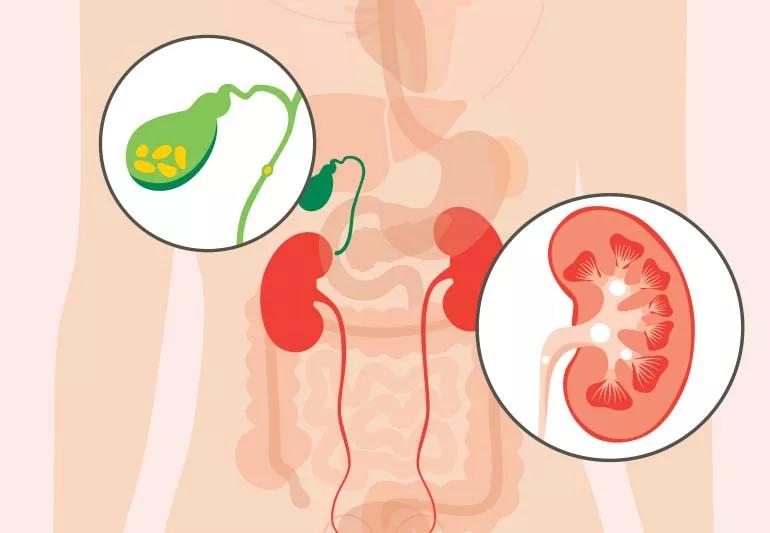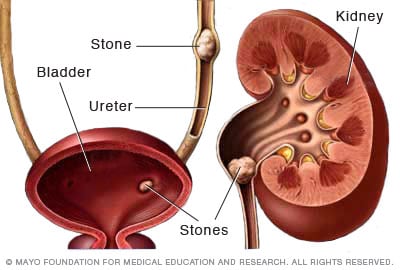Contrasting Kidney Stones vs UTI: What You Required to Understand About Their Influence On Wellness
Contrasting Kidney Stones vs UTI: What You Required to Understand About Their Influence On Wellness
Blog Article
Checking Out the Manifestations and Causes of Kidney Stones in Contrast to Urinary System Infections: A Comprehensive Guide
The expedition of kidney rocks and urinary tract infections (UTIs) discloses an intricate interplay of signs and underlying causes that require mindful evaluation. While both problems can bring about hematuria, they provide unique professional functions and occur from different etiological factors. Recognizing the nuances of each problem is vital for effective medical diagnosis and monitoring. What are the crucial differences in their signs and symptoms, and how might these inform treatment methods? The solutions to these concerns may give essential understandings into the prevention and care of these usual urological issues.
Review of Kidney Stones
Kidney stones, additionally recognized as kidney calculi, kind when particular compounds in the urine crystallize and accumulation, leading to the development of tough deposits within the kidneys. These rocks can differ in size, ranging from a grain of sand to a golf ball, and can be composed of various materials, one of the most typical being calcium oxalate, uric acid, struvite, and cystine. The development of kidney stones is affected by numerous elements, including nutritional habits, liquid consumption, and hereditary proneness.
Signs and symptoms of kidney rocks may consist of serious discomfort in the back or side, blood in the urine, nausea, and frequent peeing, specifically as the rock relocates via the urinary system tract. Diagnosis usually involves imaging researches such as ultrasound or CT scans, along with urinalysis to determine the rock's structure.
Therapy options differ based upon the dimension and type of stone, along with the severity of signs and symptoms (Kidney Stones vs UTI). Small rocks might pass normally with boosted liquid consumption, while larger stones might call for medical interventions such as lithotripsy or surgical elimination. Understanding the pathophysiology and threat factors connected with kidney rocks is necessary for effective avoidance and administration
Summary of Urinary System Tract Infections
Urinary system tract infections (UTIs) prevail microbial infections that impact any kind of component of the urinary system, consisting of the kidneys, ureters, bladder, and urethra. They primarily take place when microorganisms, frequently from the stomach system, go into the urinary system, bring about swelling and infection. UTIs are classified right into 2 main kinds: uncomplicated and difficult. Straightforward UTIs normally happen in healthy people with regular urinary system tracts, while complicated UTIs might arise in individuals with hidden problems, such as architectural abnormalities or compromised body immune systems.
The frequency of UTIs is significantly higher in females than males, primarily due to anatomical differences, such as a shorter urethra. Threat variables include sexual activity, particular contraceptive methods, urinary retention, and dehydration. The medical diagnosis of UTIs is generally verified with pee tests, which might reveal the presence of germs, leukocyte, or red blood cells.

Signs of Kidney Stones
The discomfort connected with kidney stones can show up in various ways, usually leading individuals to look for medical attention. Among the most usual signs is severe pain, typically localized in the lower back or side, which may radiate to the abdominal area or groin. This pain, usually called sharp or cramping, can take place unexpectedly and might fluctuate in intensity.
Additionally, people may experience hematuria, or blood in the pee, which can range from tiny total up to noticeable staining. This symptom might be come with by adjustments in urinary system routines, such as boosted frequency or urgency, as well as pain throughout peeing. Queasiness and vomiting are likewise prevalent, often arising from the body's response to intense pain.
In some instances, individuals may experience high temperature and cools, specifically if an additional infection develops because of the blockage brought on by the rocks. Generally, the mix of serious pain, hematuria, altered urinary system patterns, and gastrointestinal signs can give substantial understanding into the visibility of kidney rocks, requiring timely clinical analysis and treatment. Comprehending these signs is essential for prompt diagnosis and reliable administration of the problem.
Signs And Symptoms of Urinary System Infections
Infections within the urinary system tract commonly provide a series of distinctive symptoms that can substantially affect every day life. One of the most usual signs and symptoms include a consistent urge to pee, often gone along with by a burning feeling during peeing, referred to as dysuria. Individuals may likewise experience enhanced regularity of peeing, producing tiny amounts of pee each time.
Various other notable signs include reeky or cloudy pee, which may show the visibility of microorganisms or pus. Sometimes, pee might appear pink or red because of the existence of blood, a condition recognized as hematuria. In addition, people may experience pelvic discomfort or pressure, which can better exacerbate the feeling of urgency.
Systemic signs may also materialize, such as fever, cools, her latest blog and fatigue, specifically if the infection has risen to the kidneys. It is important to recognize these signs and symptoms early, as without treatment urinary tract infections can bring about extra severe difficulties. Kidney Stones vs UTI. Prompt clinical focus is recommended when these symptoms are observed, enabling proper diagnostic assessment and therapy to reduce discomfort and avoid more wellness issues
Sources Of Each Condition
Often, kidney rocks and urinary system system infections emerge from distinct yet in some cases overlapping causes that can influence people in different ways. Kidney stones typically form because of metabolic aspects, dietary selections, and hereditary tendencies. Enhanced degrees of calcium, oxalate, or uric acid in the urine can lead to stone formation. Dehydration, inadequate liquid intake, and high-sodium diets can worsen these problems, promoting crystallization within the urinary system tract.

Understanding these unique causes is vital for avoidance and treatment. Kidney Stones vs UTI. While lifestyle adjustments might alleviate the danger of kidney stones, appropriate health and timely therapy of urinary tract infections are necessary for decreasing their recurrence and linked difficulties
Conclusion
In recap, kidney rocks and urinary tract infections present distinctive signs and symptoms and underlying reasons. Kidney rocks are defined by extreme discomfort Resources and metabolic aspects, while urinary tract infections primarily entail bacterial infections leading to urinary system necessity and pain. Although both conditions can result in hematuria, their formation systems vary significantly. Recognizing these distinctions is important for reliable diagnosis and therapy, eventually improving client results for those impacted by either condition.
The expedition of kidney stones and urinary tract infections (UTIs) discloses a complex interaction of signs and symptoms and underlying reasons that require cautious examination.Urinary system infections (UTIs) are common bacterial infections that influence any type of component of the urinary system, consisting of the kidneys, ureters, bladder, and urethra.Often, kidney stones and urinary tract infections develop from distinct yet often overlapping reasons that can influence people differently.In recap, kidney rocks and urinary tract infections existing distinctive signs and symptoms and underlying causes. Kidney rocks are identified by severe pain and metabolic elements, while urinary tract infections primarily entail bacterial infections leading to urinary system urgency and pain.
Report this page